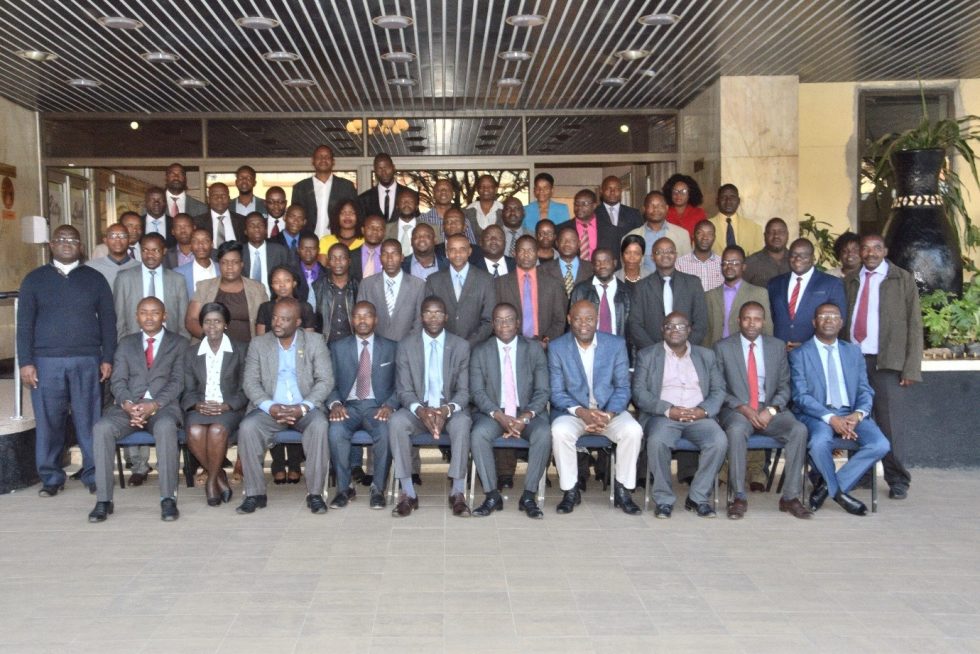The effectiveness of a county’s anti-money laundering (AML) framework is ultimately measured by the magnitude of money laundering convictions and assets of crime forfeited to the state.
The massive drive by the Government of Zimbabwe to increase the effectiveness of law enforcement agencies in investigating money laundering and related crimes (i.e. parallel financial investigations), has led to the Financial Intelligence Unit (FIU), in conjunction with the Ministry of Finance and Economic Development, conducting nationwide AML capacity building of law enforcement agencies, where they are being trained on how to and conscientize on the need to, conduct parallel financial investigations and follow proceeds of crime.
Under this initiative, a second AML awareness workshop was held in Bulawayo, from the 7th to the 9th of August 2019, for law enforcement agencies in the southern region of Zimbabwe.
A total of fifty-nine (59) specialized law enforcement agencies and prosecutors attended the workshop. Attendees were drawn from Criminal Investigations Department (CID) Asset Forfeiture Unit, CID Drugs, Zimbabwe Anti-Corruption Commission (ZACC), and the National Prosecuting Authority.
The Director General of the Financial Intelligence Unit made a key note address, where he emphasised the important role law enforcement agencies play in combatting money laundering; and the need for them to develop a culture of investigating money laundering, in addition to the predicate offences they have always been investigating.
Presenters were drawn from various key AML/CFT stakeholders who cooperate with law enforcement agencies during investigations and prosecutions. The presenters are experts in their fields of operations, and exhibit huge experiences they have acquired during their many years of service. The presenters were: Chief Superintendent – CID Asset Forfeiture Unit; Chief Superintendent – CID Drugs; Deputy Chief Magistrate; two Chief Public Prosecutors; two FIU senior officials; one senior official of the Zimbabwe Anti-Corruption Commission (ZACC); a senior officer from Zimbabwe Revenue Authority (ZIMRA); and a Head of Department for Forensic Auditing and Accounting, of the Harare Institute of Technology (HIT) University.
The workshop managed to achieve its objectives of equipping law enforcement agencies with the relevant skills to effectively conduct money laundering investigations and other related financial crimes. Such investigations should lead to convictions and confiscations of proceeds of crime. The law enforcement agencies and prosecutors in attendance committed to implementing parallel financial investigations and prosecutions, respectively. They were also urged to gather sufficient evidence for money laundering and the predicate offences, before bringing their cases before the courts. In this regard, it was recommended that prosecutor-led investigations be conducted.
Similar workshops have been lined up for the remaining parts of the country. Furthermore, prosecutor-centred AML workshops are scheduled to be conducted, as part of increasing their levels of effectiveness in prosecuting money laundering cases.

